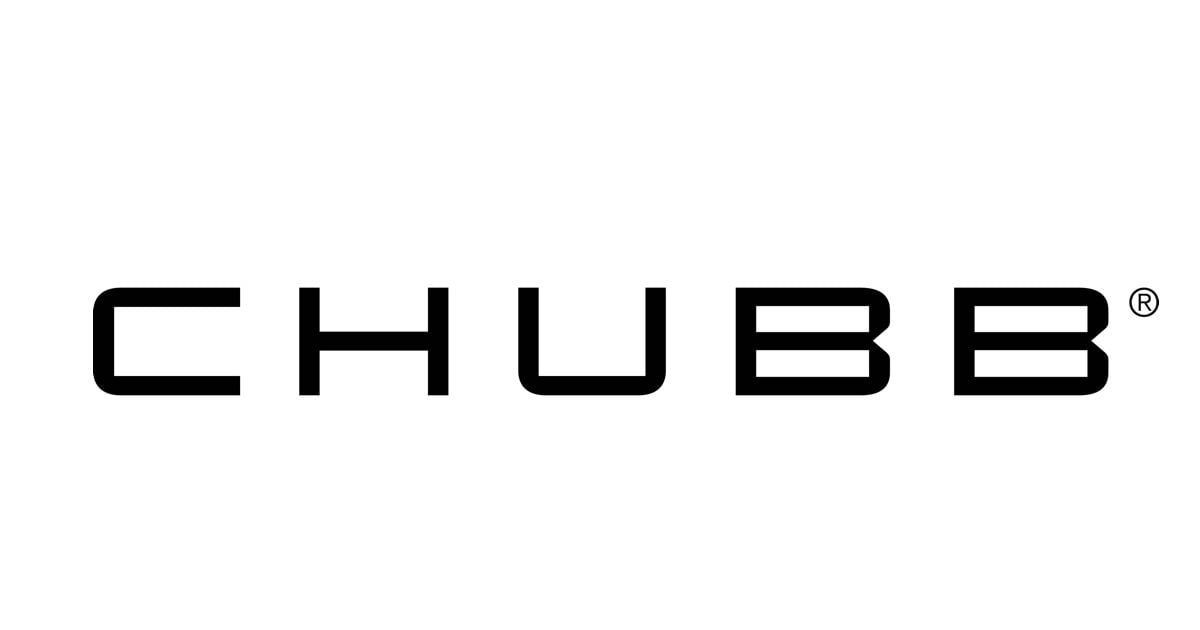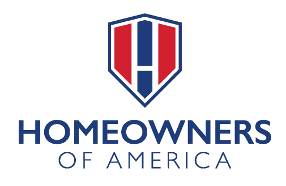Nerdy takeaways
Chubb is the top-rated insurer in Arizona, offering the best coverage for high-value homes.
Amica offers the best consumer experience.
State Farm is our choice for best value, with rates well below the state average.
Cincinnati Insurance received the fewest complaints in our analysis.
USAA is our top pick for the military community and their families.
Homeowners in Arizona have seen insurance costs rise sharply over the past few years, driven in large part by wildfires and inflation. However, many homeowners still have plenty of options. To help you find the best home insurance in Arizona, we collected and analyzed data from home insurance companies across the state.
Note: Some insurance companies included in this article may have made changes in their underwriting practices and no longer issue new policies in your state. Even if an insurer serves your state, it may not write policies for all homes in all areas.
The best home insurance companies in Arizona
Best coverage for high-value homes

Chubb
- Far fewer consumer complaints than expected for a company of its size.
- Standard coverage includes features that many companies offer only as extras.
- Perks to help you protect your home.
- Most consumers can't get a quote online and will instead need to contact a local agent.
Why it’s worth a look: Chubb caters to owners of high-end homes, offering policies with the kind of features other insurers charge extra for. For instance, Chubb’s policies include extended replacement cost coverage for the structure of your home, which is useful in case it costs more to repair or rebuild your home than expected.
Standout feature: Chubb policyholders in Arizona are eligible for Wildfire Defense Services, which can include personalized recommendations to protect your home. If wildfire threatens, the service will send firefighters to your home.
Average rates: Not available.
» READ MORE: Chubb homeowners insurance review
Best consumer experience

Amica
- High customer satisfaction ratings and low consumer complaints.
- Platinum Choice package offers extra coverage.
- Dividend policies can return a portion of your premiums.
- You can start a quote online but may have to finish the buying process by phone.
Why it’s worth a look: Amica earned high marks in two recent J.D. Power surveys about home insurance and customer satisfaction. The insurer also receives a low rate of consumer complaints to state regulators. Taken together, these suggest Amica’s customers are happy with their service.
Standout feature: Amica offers an upgraded package called Platinum Choice, which has broader coverage and higher limits than its standard package.
Average rates: Not available.
» READ MORE: Amica homeowners insurance review
Best value
State Farm
- User-friendly website.
- Agents offer personalized service.
- Policies generally include extra coverage for your home’s structure.
- Below average for claim satisfaction in a recent J.D. Power study.
Why it’s worth a look: With rates that are cheaper than the state average, State Farm is one of the more affordable choices on our list of top-rated home insurers in Arizona.
Standout feature: State Farm’s policies include additional coverage for the structure of your home in case it costs more to rebuild than expected. Many insurers charge extra for this.
Average rates: Below are average rates for a range of dwelling coverage limits.
Dwelling coverage amount | Average annual rate |
|---|---|
$300,000 | $1,485 |
$400,000 | $1,745 |
$500,000 | $1,965 |
$600,000 | $2,190 |
$700,000 | $2,395 |
» READ MORE: State Farm homeowners insurance review
Fewest Complaints

Cincinnati Insurance
- Various coverage options.
- Far fewer complaints than expected for a company of its size.
- Coverage available for higher-value homes.
- No online quotes.
- Very little information on website.
Why it’s worth a look: Cincinnati Insurance gets a very low rate of consumer complaints to state regulators. This suggests its customers are happy with the service they receive.
Standout feature: Policyholders may be eligible for discounts on water shut-off devices. These can detect leaks and turn off your water system, protecting your home from further damage.
Average rates: Not available.
» READ MORE: Cincinnati homeowners insurance review
Best for military families

USAA
- Policies include standard coverage that often costs extra elsewhere.
- Fewer customer complaints to state regulators than expected for a company of its size.
- Perks for military homeowners.
- Available only to active military members, veterans, some federal employees and their families.
Why it’s worth a look: USAA policies tend to cost less than average while offering coverage other insurers charge extra for, such as replacement cost coverage for your belongings. This makes USAA a solid choice worth considering if you’re eligible.
Standout feature: USAA offers perks specifically aimed at members of the military community, such as deductible- free coverage for uniforms and military equipement.
Average rates: Below are average rates for a range of dwelling coverage limits.
Dwelling coverage amount | Average annual rate |
|---|---|
$300,000 | $1,450 |
$400,000 | $1,705 |
$500,000 | $1,945 |
$600,000 | $2,165 |
$700,000 | $2,385 |
*USAA homeowners policies are available only to active military, veterans, some federal workers and their families. | |
» READ MORE: USAA homeowners insurance review
Other top home insurance companies in Arizona
These home insurance providers are also worth a look.
Company | NerdWallet star rating | Average annual rate |
|---|---|---|
$4,890 | ||
$4,255 | ||
Not available |
How much does homeowners insurance cost in Arizona?
The average cost of homeowners insurance in Arizona is $4,175 per year, or about $348 per month. That's 39% more expensive than the national average of $3,005 per year for the same amount of coverage.
These rates are based on a sample home insurance policy with $500,000 in dwelling coverage, $300,000 in liability coverage, a $1,000 deductible and no recent claims.
Did you know...
The dwelling coverage limit on your policy should be the amount it would take to rebuild your home, based on the cost of labor and construction in your area. It won't necessarily be the price you paid for the house or how much you could sell it for now. Use our calculator to estimate your home's rebuilding cost.
The median rebuilding cost for Arizona homes is $482,748, according to data from First Street, a climate risk modeling firm.
Below are the average rates for policies with various dwelling coverage limits.
Dwelling coverage amount | Average annual rate |
|---|---|
$300,000 | $2,690 |
$400,000 | $3,415 |
$500,000 | $4,175 |
$600,000 | $4,885 |
$700,000 | $5,490 |
The rates above are for homeowners with good credit. In Arizona, policyholders with poor credit pay an average of $6,695 per year — an increase of 60%.
Average cost of homeowners insurance in Arizona by city
The amount you pay will vary depending on where you live in the state. For example, the average cost of homeowners insurance in Phoenix is $5,125 per year, while Tucson homeowners pay $3,780 per year, on average.
City | Average annual rate | Average monthly rate |
|---|---|---|
Apache Junction | $4,635 | $386 |
Avondale | $4,260 | $355 |
Buckeye | $4,140 | $345 |
Bullhead City | $3,815 | $318 |
Casa Grande | $4,825 | $402 |
Chandler | $4,350 | $363 |
Flagstaff | $3,980 | $332 |
Gilbert | $4,330 | $361 |
Glendale | $4,500 | $375 |
Goodyear | $4,235 | $353 |
Lake Havasu City | $4,195 | $350 |
Marana | $4,025 | $335 |
Maricopa | $5,125 | $427 |
Mesa | $4,475 | $373 |
Peoria | $4,500 | $375 |
Phoenix | $5,125 | $427 |
Prescott | $3,980 | $332 |
Prescott Valley | $3,790 | $316 |
Queen Creek | $4,635 | $386 |
Scottsdale | $4,680 | $390 |
Sierra Vista | $3,975 | $331 |
Surprise | $4,395 | $366 |
Tempe | $4,420 | $368 |
Tucson | $3,780 | $315 |
Yuma | $3,655 | $305 |
The cheapest home insurance in Arizona
Here are the insurers we found with the cheapest rates for a variety of dwelling coverage limits.
Company
NerdWallet star rating
Average annual rate
$1,485
$1,620
$2,290
$2,405
$1,450
*USAA homeowners policies are available only to active military, veterans, some federal workers and their families.
Company
NerdWallet star rating
Average annual rate
$1,745
$1,900
$2,995
$3,055
$1,705
*USAA homeowners policies are available only to active military, veterans, some federal workers and their families.
Company
NerdWallet star rating
Average annual rate
$1,965
$2,140
$3,685
$3,815
$1,945
*USAA homeowners policies are available only to active military, veterans, some federal workers and their families.
Company
NerdWallet star rating
Average annual rate
$2,190
$2,365
$4,310
$4,595
$2,165
*USAA homeowners policies are available only to active military, veterans, some federal workers and their families.
Company
NerdWallet star rating
Average annual rate
$2,395
$2,580
$4,950
$5,385
$2,385
*USAA homeowners policies are available only to active military, veterans, some federal workers and their families.
Cheap homeowners insurance in Arizona by claims history
Here are the cheapest home insurance companies in Arizona for homeowners who've filed a recent claim.
Company | NerdWallet star rating | Average annual rate |
|---|---|---|
$1,965 | ||
$2,475 | ||
$3,395 | ||
$3,685 | ||
$2,155 | ||
*USAA homeowners policies are available only to active military, veterans, some federal workers and their families. | ||
These rates are based on a sample homeowner with good credit, $500,000 of dwelling coverage, $300,000 of liability coverage and a $1,000 deductible.
Cheap homeowners insurance in Arizona by credit score
Here are the cheapest home insurance companies in Arizona for homeowners with poor credit. Read more about how your credit scores impact home insurance rates.
Company | NerdWallet star rating | Average annual rate |
|---|---|---|
$3,270 | ||
$4,810 | ||
$6,165 | ||
$6,265 | ||
$4,945 | ||
*USAA homeowners policies are available only to active military, veterans, some federal workers and their families. | ||
These rates are based on a sample home insurance policy with $500,000 in dwelling coverage, $300,000 in liability coverage, a $1,000 deductible and no recent claims.
Common discounts
Make sure to ask your home insurance company about any discounts you may be eligible for. Here are some of the most common:
Many insurers offer savings if you buy more than one policy, such as home and car insurance. See our picks for the best home and auto insurance bundles.
Got a burglar alarm, smoke detectors or a smart device that alerts you if you have a leak? Safety and security features like these could earn you a discount.
Sign up for paperless billing or set your premiums to autopay, and you could get a discount.
Many insurance companies give discounts to customers who’ve gone a certain number of years without filing a home insurance claim.
Some insurers offer discounts to new policyholders or reward those who’ve stuck around for a while.
Teachers, doctors, members of the military and others may be eligible for discounts from certain insurers.
Learn more about common home insurance discounts.
Get home insurance quotes in minutes
Answer a few questions to see custom quotes and find the right policy for you.Common Arizona home insurance problems
Rising costs. Arizona’s home insurance premiums are rising more quickly than those in most other states, according to a 2025 report from the Consumer Federation of America. The increased risk of wildfire plus higher costs of labor and materials may be contributing to rising premiums in Arizona.
Wildfire. Wildfire is one of the biggest risks Arizona homeowners face, and is likely to become more of a concern as more homes are built near undeveloped land, also known as the wildland urban interface. Some homeowners in high-risk areas are getting non-renewal notices from their insurers. Others are finding their coverage costs more and doesn’t go as far.
Flooding. Monsoon season in Arizona runs from mid-June through September, bringing strong thunderstorms that can quickly turn into flash floods. If your home is damaged in a flash flood, your homeowners insurance generally won’t pay for repairs. Instead, you’ll need separate flood insurance. Most people get coverage through the federal government’s National Flood Insurance Program, but you can also shop around with private providers.
To check your flood risk, start with the federal government’s flood maps. However, these maps don’t always capture all types of flood risk. You may want to check another source such as First Street, a company that models climate hazards. Enter your address at the top of the page to see your home’s flood risk rating.
Common optional coverage
A standard homeowners policy can sometimes fall short, so it's worth looking for ways to make it more comprehensive. For example, we recommend asking if your insurer offers extended or guaranteed replacement cost coverage for your home. These add-ons give you extra dwelling coverage in case it costs more than you expect to rebuild your home after a disaster. Having this coverage can be a useful hedge against inflation.
Here are a few additional types of coverage you may want to buy.
Floods are the most common weather disaster in the U.S. and can happen anywhere, not just coastal areas. You can buy flood insurance through the federal government or from private companies. Learn whether you need flood insurance.
Consider buying earthquake insurance if you live in an at-risk area.
Homeowners policies generally won’t cover damage if a drain backs up into your home or your sump pump fails. Adding water backup coverage can help with these issues.
Homeowners policies may cover your stuff on an actual cash value or replacement cost basis. With actual cash value, the policy will pay less for older items that have lost value over time. To get enough of a claim payout to buy brand-new items, opt for replacement cost coverage.
If you have expensive jewelry, fine art or other valuables, you may need extra insurance for them. Learn more about scheduled personal property coverage.
Service line coverage pays to fix damaged water, gas, sewer or other underground lines on your property.
If your HVAC system or another major appliance fails, equipment breakdown coverage can help pay for repairs.
Arizona insurance department
The Department of Insurance and Financial Institutions oversees Arizona’s insurance industry. You can file a complaint against your insurer or look up an insurance agent’s license on the department’s website. You can call the agency at 602-364-3100.
How we review home insurance
Our editorial team considers these factors when rating homeowners insurance companies:
This part of our star rating is based largely on consumer complaints to state regulators, as reported by the National Association of Insurance Commissioners. When available, we also include each company’s performance in the most recent J.D. Power Home Insurance Study. Other factors in our consumer experience score include customer-friendly features such as online claims filing and quotes.
We use AM Best and Demotech ratings to confirm each insurer’s long-term financial stability and ability to pay claims.
Companies score higher if they offer many common endorsements and include more comprehensive coverage in their standard plans. In particular, we look at features such as extended coverage for the structure of your home and replacement cost coverage for personal belongings.
We evaluate how many of the most common home insurance discounts each company offers.
See our complete homeowners insurance rating methodology.
Frequently asked questions
Home insurance isn’t required by law, but if you have a mortgage, your lender may require you to buy it. For more information, read Is Homeowners Insurance Required?
Arizona home insurance covers your home, other structures on the property and your personal belongings. It generally pays for damage due to fire, wind, theft and other events. The exact details depend on your policy.
Here are three main ways to save money on homeowners insurance in Arizona:
Shop around to make sure you’re getting the best rate.
Choose a higher deductible. In case of any claims, you’ll pay more out of pocket, but your annual rates will be lower.
Bundle your home and auto insurance for an overall lower rate.
Arizona law doesn't permit insurers to limit or deny coverage based on the breed of dog you have. However, they can still refuse to insure a dog with a history of biting or other aggression.
NerdWallet writers are subject matter authorities who use primary, trustworthy sources to inform their work, including peer-reviewed studies, government websites, academic research and interviews with industry experts. All content is fact-checked for accuracy, timeliness and relevance. You can learn more about NerdWallet's high standards for journalism by reading our editorial guidelines.
- 1.Consumer Federation of America. Overburdened: The Dramatic Increase in Homeowners Insurance Premiums and its Impacts on American Homeowners. Accessed Feb 20, 2026.
- 2.The University of Arizona Cooperative Extension. Wildfire & Homeowners’ Insurance Non-Renewals in Arizona. Accessed Feb 20, 2026.
- 3.Arizona Emergency Information Network. Monsoon Awareness. Accessed Feb 20, 2026.
Star rating methodology
NerdWallet’s homeowners insurance ratings reward companies for customer-first features and practices. Ratings are based on weighted averages of scores in several categories, including financial strength, consumer complaints, coverage, discounts, claims process and website functionality. These ratings are a guide, but we encourage you to shop around and compare several insurance quotes to find the best rate for you. NerdWallet does not receive compensation for any reviews or star ratings.
Here’s how we weighted each category to come up with our list of the best home insurance companies:
Consumer experience (40%).
Financial strength (30%).
Coverage (25%).
Discounts (5%).
Read our full home insurance ratings methodology for more details.
Homeowners insurance rates methodology
NerdWallet calculated median rates for 40-year-old homeowners from various insurance companies in ZIP codes across all 50 states and Washington, D.C. All rates are rounded to the nearest $5.
Sample homeowners were nonsmokers with good credit living in a single-family, two-story home built in 1984. They had a $1,000 deductible and the following coverage limits:
$500,000 in dwelling coverage.
$50,000 in other structures coverage.
$250,000 in personal property coverage.
$100,000 in loss of use coverage.
$300,000 in liability coverage.
$1,000 in medical payments coverage.
We made minor changes to the sample policy in cases where rates for the above coverage limits or deductibles weren’t available.
In states where credit is a rating factor, we changed the credit tier from “good” to “poor,” as reported to the insurer, to see rates for homeowners with poor credit.
In select states, we added a single wind damage claim to see rates for homeowners with a claim on their record.
These are sample rates generated through Quadrant Information Services. Your own rates will be different.
Complaint methodology
NerdWallet examined complaints received by state insurance regulators and reported to the National Association of Insurance Commissioners in 2022-2024. To assess how insurers compare with one another, the NAIC calculates a complaint index each year for each subsidiary, measuring its share of total complaints relative to its size, or share of total premiums in the industry. To evaluate a company’s complaint history, NerdWallet calculated a similar index for each insurer, weighted by market shares of each subsidiary, over the three-year period.
NerdWallet conducts its data analysis and reaches conclusions independently and without the endorsement of the NAIC. Ratios are determined separately for auto, home (including renters and condo) and life insurance.
Rebuilding cost methodology
The median home rebuilding cost referenced above is based on 2025 replacement cost data from First Street, a climate risk modeling firm. Actual replacement costs may vary based on factors like location, square footage, construction materials, the age of your home and local labor costs.






